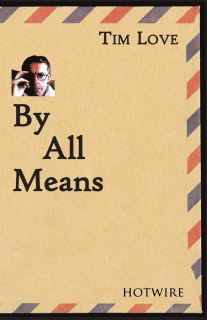According to William Empson "Poets, on the face of it, have either got to be easier or to write their own notes; readers have either got to take more trouble over reading or cease to regard notes as pretentious and a sign of bad poetry" ("Argufying", 1987). I've some sympathy with this. Though the author might not be best placed to write a study guide, they have a unique viewpoint and should have some worthwhile comments to offer. The best example that I know of (and it's excellent) is Kona MacPhee's The Perfect Blue companion. She writes - "I'm hoping to provide the same kind of informal preambles that I might offer when introducing the poems at a reading" and that "The commentaries aren't aimed at other poets, critics, literary academics or "professional" poetry readers, but rather, they are explicitly intended to provide a handhold, a stepping stone, a small reason-to-trust for readers new to poetry".
I'm surprised that more people haven't written such commentaries. If you know of more, tell me. My attempts are
I've had no feedback about these. They're not often visited; the pages that are read the most are those that web searches on other subjects would most likely stumble upon. At least they serve to archive something of the books' beginnings and launches, and correct misunderstandings that might easily arise. They also helped with the issue of deciding how many notes and footnotes to put in the books.
Later ...
Having made a similar post at Eratosphere, Maryann Corbett et al made the point that I'm conflating different kinds of web-augmentation -
- Notes - like you'd get in the poetry book
- Study Guides - see for example Jehanne Dubrow's Red Army Red Study Guide. Some books include study guides nowadays. They might encourage CW tutors or reading groups to choose the book.
- Commentaries - like Kona MacPhee's, aimed at non-poets
- Companion Site - a place to store corrections, and links to youtube clips or reviews.
 At about 3pm on Apr 13th, my DIY/family circumstances clarified so somewhat unexpectedly off I went to the Happenstance extravaganza in London. The excitement began at the station where I had my first chance to use double-decker bicycle-parking.
At about 3pm on Apr 13th, my DIY/family circumstances clarified so somewhat unexpectedly off I went to the Happenstance extravaganza in London. The excitement began at the station where I had my first chance to use double-decker bicycle-parking. The non-stop train soon arrived at platform 0 of King's Cross. I was early, so I walked along Regent's canal and read about Daubenton's bat before drifting north. In a window I saw this sign for writers and artists. It took me a while to work out what "rapers" meant in the third line ("ranters, rapers, poets and storytellers"). And it ends with "Do not forget: Everyone can be creative!". I wouldn't like to be running those meetings.
The non-stop train soon arrived at platform 0 of King's Cross. I was early, so I walked along Regent's canal and read about Daubenton's bat before drifting north. In a window I saw this sign for writers and artists. It took me a while to work out what "rapers" meant in the third line ("ranters, rapers, poets and storytellers"). And it ends with "Do not forget: Everyone can be creative!". I wouldn't like to be running those meetings. Nell's meticulous plan was that 20 or so poets would read in order of publication and she'd interpolate the history of the press. 9 years of history compressed into 90 minutes or so. I thought it would overrun hopelessly - not the first time my predictions had turned out wrong. When, years ago, she'd first mentioned to me the idea of starting a press, I'd not given the project much of a chance (see my
Nell's meticulous plan was that 20 or so poets would read in order of publication and she'd interpolate the history of the press. 9 years of history compressed into 90 minutes or so. I thought it would overrun hopelessly - not the first time my predictions had turned out wrong. When, years ago, she'd first mentioned to me the idea of starting a press, I'd not given the project much of a chance (see my  A few minutes before I was due on I changed my mind about what to say and perform. In the end I read
A few minutes before I was due on I changed my mind about what to say and perform. In the end I read  My story collection "By All Means" (ISBN 978-0-9570984-9-7), published by Nine Arches Press, is on sale from
My story collection "By All Means" (ISBN 978-0-9570984-9-7), published by Nine Arches Press, is on sale from  My poetry pamphlet "Moving Parts" (ISBN 978-1-905939-59-6) is out now, on sale at the
My poetry pamphlet "Moving Parts" (ISBN 978-1-905939-59-6) is out now, on sale at the 